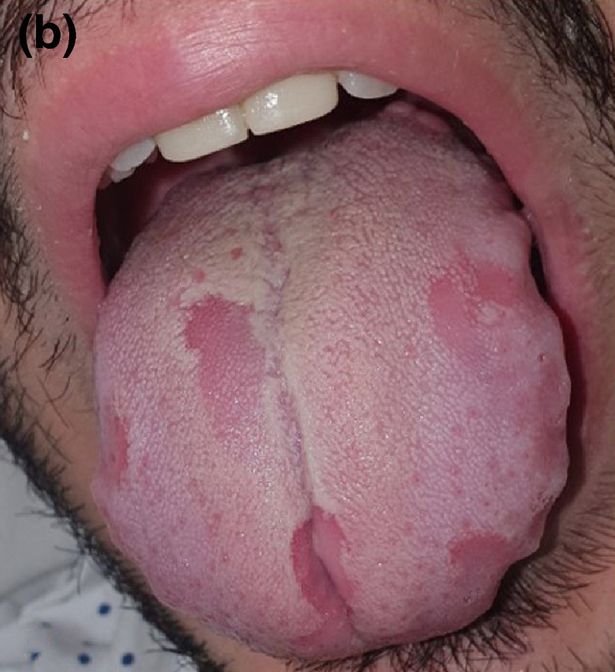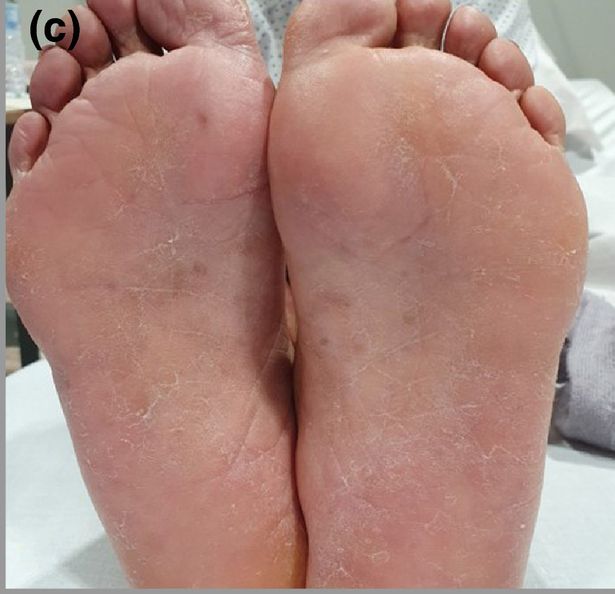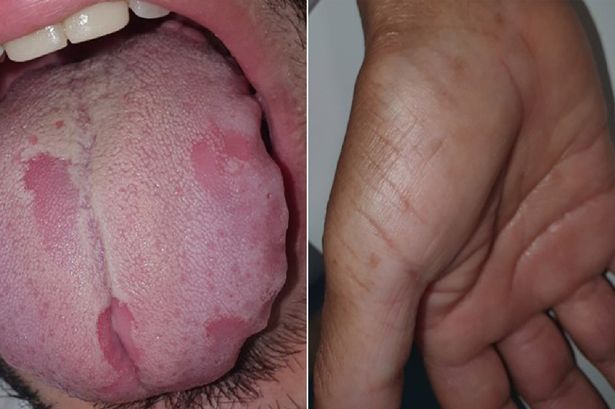As time goes by, researchers are gaining a deeper understanding regarding coronavirus – including the symptoms to look out for.
By now we know the main symptoms the NHS says to look out for – a new, continuous cough, a fever and loss of taste and smell.
But research suggests there are three strange changes to our body that could be the latest sign of coronavirus.
Researchers from Spain looked at 666 mild-to-moderate Covid-19 patients, and found that 45.7% experienced changes to the mouth, hands and feet.
One in four of the patients had what has been classed as Covid tongue – inflammation or bumps and ulcers on the tongue.

Nearly 40% of the patients had redness, burning and hives on the palms of the hands, and soles of the feet.
The most common body change was transient lingual papillitis – or inflammation of the papillae.
This presents itself as small bumps on the surface of the tongue.
Now the team at Hospital Universitario La Paz, Madrid, are urging doctors and nurses to examine the mouth, hands and feet of suspected Covid patients.
The team believe this could potentially lead to a quicker diagnosis.
The study also found other coronavirus symptoms currently not recognised by the NHS.
6.9% of the patients reported having aphthous stomatitis, which occurs when benign and non-contagious ulcers form in the mouth.
It also found that 6.6% reported glossitis, or inflammation of the tongue causing it to swell and change colour.

When it comes to the hands and feet, the most common condition was widespread skin peeling.
Around 15% of the patients also experienced itchy redness on the palms of their hands and soles.
A smaller percentage, around 7%, reported a burning sensation, while 6.9% said they had hives, and 2.9% a rash.
The researchers concluded: “In summary, almost half of patients with mild‐to‐moderate Covid‐19 admitted in a field‐hospital during a two‐week period showed mucocutaneous findings.”
The study continued: “The oral cavity was frequently involved and deserves specific examination under appropriate circumstances to avoid contagion risk.
“Redness and swelling of the hands and feet, fine palmoplantar desquamation and reddish‐to‐brown macules can help us to diagnose COVID‐19 infection and should be routinely checked.”


